There’s been a lot of talk of a recession lately, forecast to hit harder and last longer in some areas than others. While the U.S. is not said to be in a recession yet, recently the bank of England reportedly said that the U.K. is headed for its longest one since records began a century ago.
Scary warnings abound. But it’s hard to predict what will actually happen, and the luxury travel and wellness sectors may fare better than other industries.
Business Insider reported in October 2022 that the wealthy are splurging on bucket-list trips, like flying to the Arctic Circle for private-chef-catered meals, renting out African safari lodges, and spending $300,000 for a half-hour opera serenade. Luxury-travel planners say their clients are seeking more extreme experiences than they were pre-pandemic, and that pent-up demand and newly acquired wealth mean people are going all out, even as the economy worsens. And, according to Forbes, a survey conducted in September by Destination Analysts found that 54.4% of Americans said that travel was either an “extremely high,” “high” or “somewhat high” budget priority in the next three months.
Virgin CEO, Richard Branson, is optimistic too. Though the Virgin empire struggled through COVID, grounding Virgin Atlantic Airways, closing hotels, and delaying the launches of both its Virgin Galactic space tourism arm and cruise-ship operator Virgin Voyages, Branson says clearer skies are ahead.
“Now we’re through Covid, we’re in a stronger position than maybe some other companies,” he said in an interview. “There is no question that some people are going to have tremendous difficulties and are not going to be able to afford to travel. But there is enough pent-up demand from others who can.”
Those with the means are also reportedly still spending on luxury goods, as reported in October by Bloomberg in an article with the headline, “The Rich Are Spending on Luxury Goods Like It’s 1999.”
And the wellness sector as a whole is expected to be more resilient to a recession than other industries. In a survey by Wakefield Research in conjunction with Restore Hyper Wellness, 62% of respondents said that preventative health and wellness activities would be the last thing they cut back on in a recession and that they would be willing to limit their social life to continue to afford these activities.
This all sounds pretty good. Even spa, which was treated as an afterthought by the hospitality industry for ages, is seeing the uptick. It’s predicted that the spa services market will thrive from 2022 to 2032. reaching a valuation of $140.28 billion USD with a CAGR of 10% over this period.
Still, one should be as prepared as possible for disruption. Despite the rosy picture, we should all know by now that disruption is unpredictable and can blindside even the most seemingly robust of businesses.
Here are four strategies for recession proofing your spa business.
Capture all possible bookings
Anything taking up time that could be automated instead, should be. Online and mobile booking are musts. These functionalities cut the time employees spend on the phone and capture appointments outside of business hours. As Yoshimi Anderson, Spa Director at Na Ho’ola Spa at Hyatt Regency Waikiki Beach puts it, “Appointments come in while we are asleep. Guests can easily book online at any time.” Anderson also said that 50% of the spa’s revenue is coming from the online booking site. Online booking also reduces cancellations. Pedro Castillo, Spa Director at Eden Roc Cap Cana, said, “With Book4Time, our clients reserve online and the system automatically sends them
appointment reminders. It’s a better experience for the guests and less work for us. As a result, we’ve reduced our cancellations by 90%.”
Automate
Reduce workload and automate what you can. Digital intake forms capture guest information and save time inputting data. Membership billing and loyalty programs should be automatically processed by your software system. Automating inventory updates and calculation of payroll can save hours of time per week. Shane Bird, Director of Spa Operations at Turning Stone Resort and Casino’s Skana and Ahsi spas said that using Book4Time’s reporting dashboards reduced time spent on payroll from 6-7 hours a week to about 15 minutes, a 95% reduction in time spent. All of these things save time and labor, which is important at any time, but especially during a recession.
Diversify revenue streams
Having only one or two revenue streams puts your business in a precarious situation at the best of times, because if you lose one or both of them, you lose everything, as many spas discovered during the COVID-19 shutdowns. During that time many spas realized the value of creating diverse revenue streams through creativity and innovation, making them better equipped to handle the disruption. Diverse revenue streams also bring in more revenue in the best of times. Possibilities are truly only limited by your imagination. Options include, but are not limited to, memberships, subscription services, partnering with experts and other businesses, and leveraging technology to include low-touch or touchless therapies in your treatment options, which can bring in revenue while freeing up therapist time.
Optimize occupancy with revenue management
Revenue and yield management mean optimizing pricing and product or service availability based on anticipating consumer behavior and fluctuating market factors in order to achieve the best financial results. Revenue management strategies include:
Menu engineering: For example, only offering your top revenue generators during peak times and other services during less busy times. So, your $350, 90-minute signature body treatment is only available Saturday afternoons while on weekday mornings one can get a basic massage or short pedicure.
Tiered memberships: Value-added memberships with VIP service and additional features for higher tiers and more basic tiers at the lower cost level, for example
Unbundling: Such as selling a product or service that was once bundled with another product or service separately. An airline industry example is charging for checked baggage – a service that used to be free – and internet. In a spa with a salon component, this might mean charging for a manicure by individual nail rather than the whole hand, or charging separately for hair washing, cutting, and blow drying.
Find many more at this link: A Guide to Revenue Management for Your Spa
Life and business are unpredictable. We can’t predict the future, but we can prepare ourselves to weather a storm as best we can.


